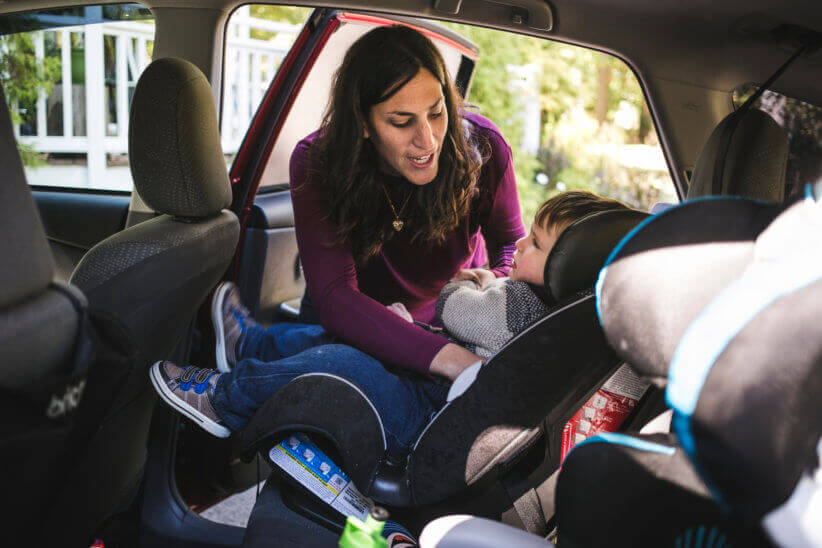Recently I stumbled across an article from The Journal of Perinatal Education that said first-time mothers could benefit from more postpartum preparation. “First-time mothers want more information about how a newborn will impact their lives,” the article explained. It went on to say that thirty-five percent of new moms did not feel prepared for the physical experience following birth and twenty percent did not feel prepared for the emotional experience. With that in mind, I put together a list of 12 ways you can prepare for motherhood–hopefully it will help make the transition into parenting easier!
Ask for help! This is one of the best ways of taking care of yourself. Help could be in the form of a postpartum doula, a rotating schedule of friends that will come by, or parents or in-laws.Be clear with your requests: do you need more water, light housekeeping, someone to watch the baby so you can step out of the house and walk around the block? If people are there, they want to help.
Pack your freezer!
Tell your friends not to bring flowers, but food! A well-stocked freezer
of healthy, easy-to-heat-up nourishment is going to be far more
appreciated in the days and weeks following birth than a bouquet of
slowly wilting flowers that you do not have the energy to throw out.
Before baby arrives, take some time to either cook some of your favorite
freezer-friendly meals or stock up on some from your local grocer.
There are also meal services that cater to the nutritional needs of the
new moms, such as Mothers and Menus.
Set boundaries.
Discuss with your partner how to handle traffic control of visitors and unwanted (yet often well-meaning) advice. If too many people want to visit at one time, set a schedule for visitors.
Sometimes good-intentioned grandparents or siblings have opinions on how to raise children they may strongly push on you. Think about how you might handle this.
Take an infant CPR class.
My husband and I took one of these classes before our baby arrived and while I hope we never have to use the skills we learned, I do feel more prepared as a parent. The Infant Safety and CPR class offered at Prenatal Yoga Center also cover SIDs prevention.
Talk with your partner about life with baby.
Have an open, honest discussion with your partner about what your new life will look like.
Some topics to think about are:
*Your fears surrounding the arrival of your new baby.
*Understanding that both parents will be sleep-deprived and that this can lead to edginess and irritability.
*Asking your partner to be understanding of the huge hormonal shift occurring postpartum.
*Understanding that your sex life will be different postpartum. Talk about what the expectations are and how you can support one another in this different phase of your physical relationship.
*Looking for signs of potential postpartum depression.
Wash some baby clothes.
Once you arrive home from the hospital or birthing center, or stumble back to your bedroom after a home birth, it will be nice to know that your new arrival already has some fresh, clean clothes waiting. The last thing you want to do is a load of laundry!
Create a “nursing corner.”
The first several weeks after baby arrives you will be nursing your baby about every two hours–so there will be a lot of time stationed in one spot. Most likely there will be one or two areas in your home that are designated as your nursing stations. Get these areas ready with your Boppy or My Breast Friend, a place for water, books, a spot for your cell phone, and whatever else you think you need.
Stock up on nursing (or bottle-feeding) supplies.
If you are choosing to breastfeed, have some supplies ready, including nursing bras, breast pads, creams for sore or cracked nipples and a breast pump. There are several stores in the city that can assist with getting started. On the Upper East Side, I recommend Yummy Mummy. (You don’t have to make an appointment and the owner, Amanda, is super helpful!) On the Upper West Side, there is The Upper Breast Side, another great resource center and shop for new mothers.
If you are going to bottle feed, you will want to get a few different types of bottles since you don’t know which one your baby will like best. Also, some babies have food allergies, so you may want to have different types of formula on hand.
Be prepared for some physical discomforts post-labor.
It is not uncommon to have tearing at the perineum and hemorrhoids following delivery. There are a few products to have on hand that can help ease any discomfort you’re experiencing. Get some overnight Maxi pads, put some witch hazel on them, and then stick them in the freezer. These home-made “ice packs” will help promote healing of the pelvic floor and also feel very soothing. You can also use a sitz bath for hemorrhoids and a peri bottle while urinating to prevent some stinging.
Organize all the phone numbers you may need after baby arrives. While many of us have these numbers stored in our cell phone, have a master list clearly posted or kept in your apartment so that anyone can find them.
This list should include:
*Your pediatrician
*Lactation consultant
*Poison control
*Cell numbers for both parents
*Cell numbers for close friends
*Food delivery places
*This one may sound odd–but if you have a pet, include your vet’s number in case someone else needs to help with the pet
Look into support groups.
Find out ahead of time if there are local support groups in your area focusing on new motherhood or breastfeeding. At Prenatal Yoga Center, we offer both. La Leche League is also a very popular and supportive breastfeeding resource available in many places.
Relax.
Spend some of your last days of pregnancy relaxing. The baby’s room does not have to be complete and not everything off your registry has to be purchased before the arrival of your little one. Relaxing before the onset of labor will actually benefit you during your
labor and delivery and can make the transition into postpartum easier.
For those seasoned moms out there, if I am missing anything you think was helpful for you, please leave a comment and let the community benefit from your experience!





















